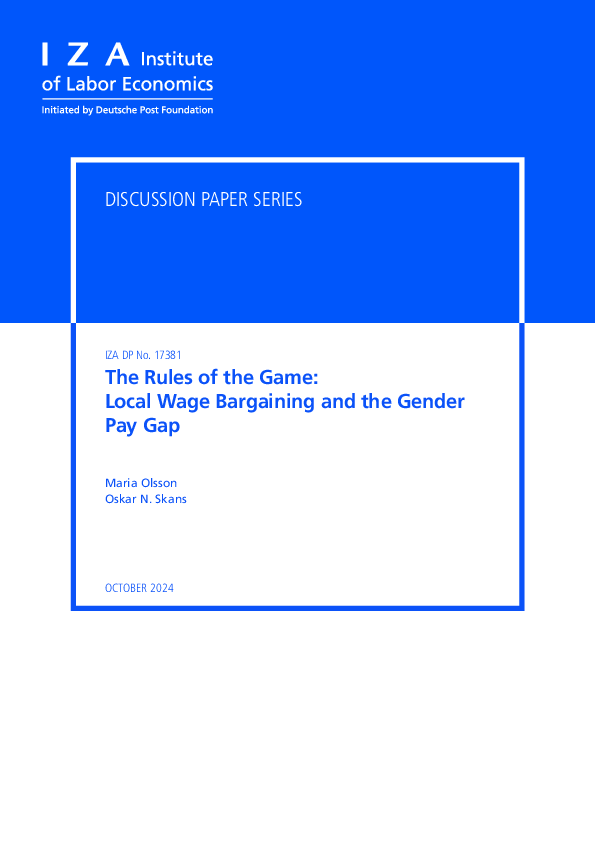The rules of the game: local wage bargaining and the gender

Olsson, Maria ; Nordström Skans, Oskar
Institute of Labor Economics, Bonn
IZA - Bonn
2024
33 p.
collective bargaining ; gender equality ; trade union role
Discussion Paper
17381
Collective bargaining
https://docs.iza.org/dp17381.pdf
English
Bibliogr.
"We study how local bargaining institutions affect the within-job gender wage gap among Swedish blue collar workers. Collective agreements with varying degrees of local flexibility tend to cover blue-collar workers across different occupations within the same firm. As a consequence, workers performing the same tasks but in different firms are covered by different agreements. We show that the gender pay gap is substantially reduced in jobs covered by collective agreements that guarantee each worker a minimum pay raise every year. Bargaining constraints have a greater impact on gender equality in settings where females are underrepresented. Effects are smaller in more productive firms as these firms can share rents above the contractual minimum with less constraints, even when formal contracts are rigid. Overall, the results suggest that the specifics of local bargaining institutions can play an important role in shaping gender wage disparities among low-paid workers."
Digital
The ETUI is co-funded by the European Union. Views and opinions expressed are however those of the author(s) only and do not necessarily reflect those of the European Union or the ETUI.